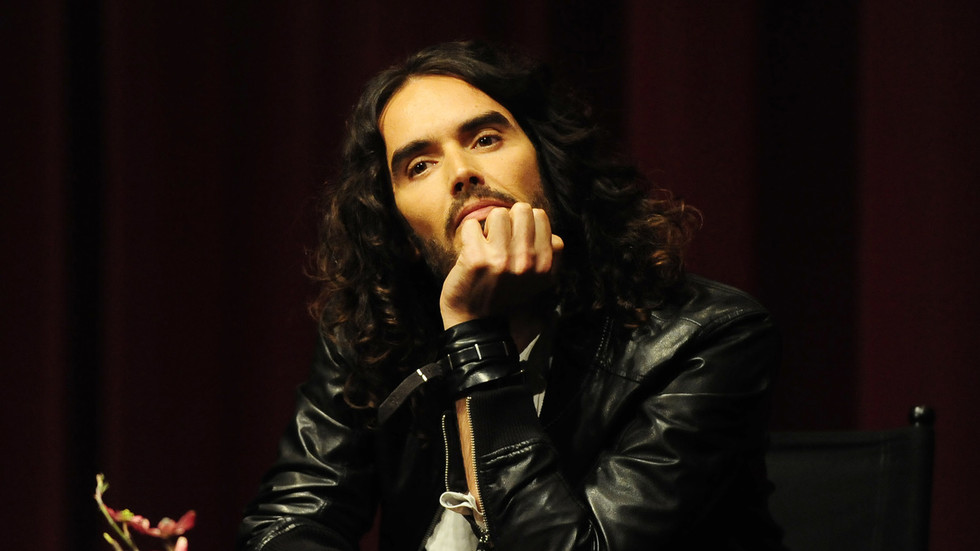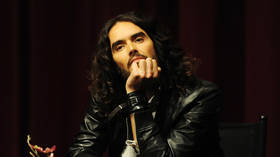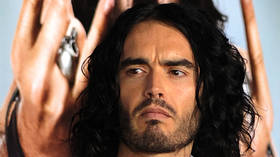
Police investigations into the comedian have begun, but his career is dead regardless of whether he’s found guilty or not
Graham Hryce is an Australian journalist and former media lawyer, whose work has been published in The Australian, the Sydney Morning Herald, the Age, the Sunday Mail, the Spectator and Quadrant.
Graham Hryce is an Australian journalist and former media lawyer, whose work has been published in The Australian, the Sydney Morning Herald, the Age, the Sunday Mail, the Spectator and Quadrant.

Russell Brand © Amy Graves / WireImage
The #MeToo movement’s persecution of celebrity and actor Russell Brand has intensified in predictable fashion over the past week.
The London Metropolitan police and Thames Valley police have now commenced separate formal investigations into various complaints lodged against Brand. This comes as no surprise, given that the police enthusiastically invited complainants to come forward – and once a #MeToo target has been identified a raft of additional complaints is certain to emerge.
London shopkeepers – who are currently trying to cope with an epidemic of gang-organised shoplifting caused by the police’s refusal to investigate such crimes if less that £200 pounds is involved – must be astounded at the very different approach that the police have taken to the historical complaints, many of them trivial, made against Brand.
The police, however, have been ideological captives of the #MeToo movement for many years, and it now seems inevitable that criminal charges will eventually be brought against Brand.
Britain’s political elite has also, unsurprisingly, elected to join in the pile-on against Brand in recent days. Dame Caroline Dineage, Conservative MP, former minister, and chair of the Culture, Media and Sports Committee, has written to online video platforms Rumble and TikTok – on which Brand delivers podcasts – asking that they “de-platform” him, thereby depriving him of his major source of income.

Read more
Dineage is a #MeToo warrioress of note who has served the movement with distinction in the past. In 2022, she claimed that the British parliament was a hotbed of “inappropriate behaviour” and that, on one occasion, an unnamed Opposition politician had made her feel “uncomfortable.” No wonder Dame Caroline was outraged by Brand’s alleged sexual indiscretions.
To its credit, Rumble refused to bow to the esteemed Dame’s request – describing it as “disturbing, deeply inappropriate and dangerous.” Rumble then issued a statement saying it was “immune to cancel culture” and reaffirming its commitment “to an internet where no one arbitrarily dictates which ideas cannot be heard, or which citizens may or may not be entitled to a platform.”
As a result, a number of large corporations, including Burger King, Asos, the Barbican, and Hello Fresh, immediately stopped advertising on Rumble.
Rumble has taken a genuinely democratic stance – letting its subscribers decide whether to continue to support Brand by continuing to view his podcasts.
Rumble’s principled position, however, is very much the exception rather than the rule. YouTube has demonetised Brand’s account, and the BBC and Channel 4, employers and promoters of Brand for years, have removed all programs featuring Brand from their online archives.
This is in deference to the #MeToo movement’s vindictive and irrational demand that an alleged perpetrator not only be destroyed in the present, but also completely erased from history – somewhat reminiscent of Stalin’s erasure of Trotsky, albeit on a more trivial scale.
The political, corporate and media elites in the West certainly know how to band together to bring about the destruction of a #MeToo target.
One might ask why – in a supposedly liberal democratic society that purports to believe in free speech, the presumption of innocence and the rule of law – politicians, mainstream media organisations and large corporations so enthusiastically transgress these principles in order to destroy prominent targets like Brand.

Read more
The answer to that question is obvious. So-called liberal democratic societies in the West are no longer liberal or democratic in any meaningful sense – and the elites that rule them are fundamentally opposed to liberal democratic values.
The #MeToo movement is only one of various ideologies adhered to by these elites – others include identity politics, so-called transgender rights, and catastrophic climate change – all of which share its fierce anti-liberal and anti-democratic animus.
Brand continues to deny the allegations made against him, as best he can – given that many of the allegations lack specificity, and all have been made anonymously.
Unlike some #MeToo targets who capitulate and offering abject apologies for their alleged transgressions, in the pathetic hope of preserving what is left of their careers, Brand seems determined to fight the #MeToo campaign that has engulfed him.
At the end of the day, however, the best that Brand can hope for is to successfully defend himself in any criminal proceedings that may be brought against him – but even if he does so, his reputation and career will remain in tatters.
This was dramatically confirmed in Australia last week when a prominent international Sri Lankan cricketer, Dunuska Gunathilaka, was acquitted of a charge of rape in a Sydney court – after having been the target of a classic #MeToo campaign.
Late last year, at the end of the Sri Lankan cricket team’s tour, Gunathilaka was charged by police with rape as he was about to board a plane and return home to Sri Lanka.
The fact that he had been charged was leaked to journalists, and lurid front-page stories appeared in the media detailing the alleged rape. Gunathilaka’s cricket contract was immediately cancelled, and he was forced to remain in Australia until his trial concluded last week, some ten months later.
As a result of the widespread salacious publicity given to the matter, Gunathilaka’s trial took place before a judge alone – he having, in effect, been denied the right to a jury trial.
At the trial the actual facts surrounding the alleged rape emerged. The complainant and the cricketer met each other on the dating site Tinder, met for a drink and dinner and then travelled by ferry back to the complainant’s house. Surveillance cameras captured these events and the trial judge, Judge Sarah Huggett, found that “the mood captured by these videos seemed relaxed, happy and playful.”
After a drink in her lounge room, the complainant invited the cricketer into her bedroom. They then had sex. The cricketer then returned to his hotel.
A few days later the complainant went to the police, and Gunathilaka was charged with rape. At trial the complainant accepted that sex between her and the cricketer had been consensual.
Extraordinarily, it emerged that her claim to have been raped was based solely upon an allegation that the cricketer had removed the condom he was wearing during intercourse, without telling her. This is termed “stealthing” and, under the applicable legislation, if proved to have occurred, constitutes rape.

Read more
Judge Huggett found that Gunathilaka had not, in fact, removed his condom and that he could not have done so – thereby believing the cricketer’s account of what had occurred, and disbelieving the evidence of the complainant. This finding was hardly surprising, given that the complainant had admitted under cross-examination that she had not actually seen the cricketer remove the condom.
The judge went on to find that “some of the complainant’s evidence had the appearance of being motivated by a desire to paint the accused in an unfavourable light” – surely something of an understatement in the circumstances.
More disturbingly, the evidence disclosed that when the complainant first spoke to police she made no complaint about the cricketer removing the condom at all, and that the police had later destroyed their notes of this meeting. This caused the trial judge to say that “aspects of the handling of her complaint were far from satisfactory and, to be frank, very concerning.”
In my opinion, Gunathilaka should never have been charged with rape at all. In fact, the entire prosecution of the cricketer was nothing less than a legal travesty – brought about by the powerful and corrupting influence of the #MeToo movement.
Notwithstanding that Gunathilaka’s reputation and career have been irretrievably damaged by the campaign waged against him, he was fortunate to have been acquitted by a principled judge and escaped a lengthy prison sentence.
Whether Russell Brand will be as fortunate as the Sri Lankan cricketer remains to be seen.
The statements, views and opinions expressed in this column are solely those of the author and do not necessarily represent those of RT.




